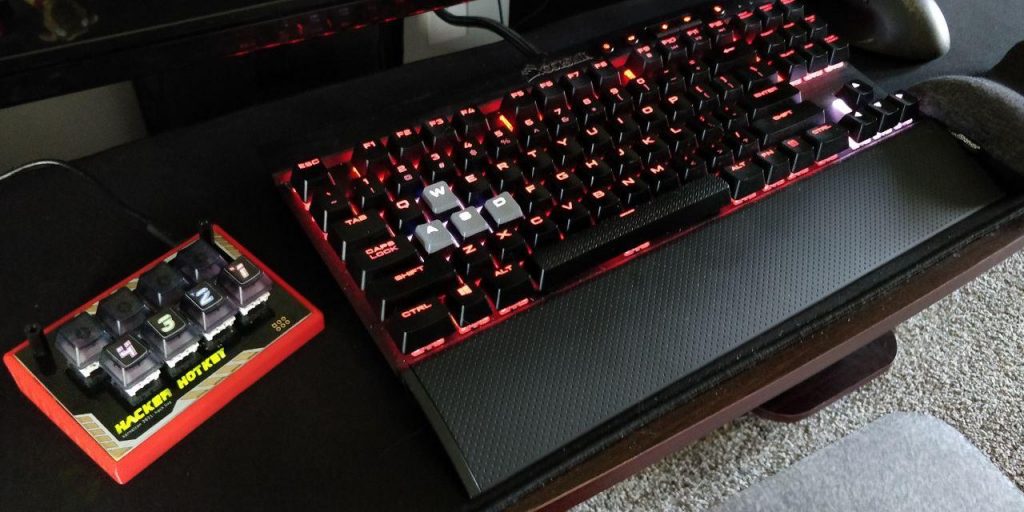I had plans to do an in-depth post about web application security this month but some major changes in my life made it difficult to finish the required research. Instead, I’m going to share something a little different.
Presenting, the Hacker Hotkey, the badge for Kernelcon 2021!

Since Kernelcon 2021 was virtual again this year, the organizers wanted to do something different so they hosted a live hacking competition where viewers could vote on the challenges contestants were issued. The Hacker Hotkey came pre-programmed to open links to the event stream, the Discord chat, and cast votes. They’re currently still available for sale so grab one while you can and get yourself a handy-dandy stream deck!
As always, the organizers of Kernelcon knocked it out of the park but I’d be lying if I said I didn’t spend most of the time tinkering with my Hacker Hotkey. I thought I’d share my code and configuration here.
Edit (5/7/21): In order to get better support for media keys and contribute to the kernelcon/hacker-hotkey project, I’ve removed the old repository and updated it with one that no longer has my custom keybindings. Stay tuned, as this could be interesting!
All I really did was fork the official Kernelcon git repo and add in my own commands and keyboard shortcuts. I don’t do any streaming (for now) so my tweaks were meant to be simpler. For instance:
- key 1 opens up a link to my personal cloud
- key 2 starts OBS with the replay buffer running
- key 3 is supposed to save the replay buffer to a file but I couldn’t get that to happen without setting a keyboard shortcut in OBS Studio (Ctrl + F8). I ran into a strange issue where the Hacker Hotkey will send those exact keystrokes to the system, but OBS Studio doesn’t recognize it unless OBS has focus. Loads of good that does me when I want to save a replay while I’m gaming! But weirdly enough, it works just fine when using the actual keystrokes on my keyboard. I’ll keep tinkering at it and hopefully get something better working.
- key 4 uses
gnome-screenshotto take a screenshot of the window that’s in focus and save that to my ~/Pictures directory
I wanted to set one key to toggle mute on my microphone, one to toggle my camera, another to pause/play music, and the last to move to the next song, but to get that working, I ended up having to set keyboard shortcuts within GNOME. That’s fine, but I can just use those keyboard shortcuts instead of the Hacker Hotkey so it’s doesn’t make a lot of sense. I also wanted the hotkey to be portable so that I could plug it into another system and keep that functionality and this way does not achieve that.
If you have any ideas about how I can fix this, or get my keyboard shortcuts to at least be portable via my dotfiles, leave a comment. I’m a little out of my depth with Arduino development but hey, it’s a fun learning opportunity
Edit (5/14/21): My repository now has support for media keys which makes toggling the play/pause of your system audio much simpler. This was achieved by swapping out the standard keyboard library with the NicoHood/HID library. See my pull request for more information.
My new keybindings follow like so:
- key1 – open link to my cloud
- key2 – start OBS with replaybuffer running
- key3 – key binding set in OBS to save replay buffer (still not working unless OBS has focus)
- key4 – take a screenshot using
gnome-screenshot -w - key5 – print an emoticon and hit return
- key6 – mic mute commands
- key7 – MEDIA_PLAY_PAUSE
- key8 – MEDIA_NEXT